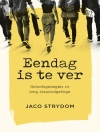The chapters in this volume contribute to recent scholarship exploring the reform of worship as a central feature of Protestant communities at their inception and through the ages. Case studies ranging from sixteenth-century Geneva and its environs to the early modern Netherlands and South Asia to nineteenth-century America provide a corrective to traditional depictions of Reformed worship as a static, sober, interior, and largely individual experience focused on the sermon. The key moments in the broad stream of Reformed worship traditions analysed by an international team of experts yield collectively an image of the adaptive and negotiated character of worship attitudes and practices over time and in varied cultural settings. The contributions examine the phenomenon of worship in broadly construed ways and from angles ranging from ritual studies, liturgical innovation, material culture, and social impact. A second »red thread« running through the volume concerns the material, sensory, emotional, and experiential dimensions of Reformed religious culture. Worship emerges as both a site of conflict and renewal in Reformed traditions, inspiring not only confrontations and debates but also fruitful engagements that stimulated and continue to invite reflection on this critical category of Reformed faith traditions, self-understandings, and cultural impact.
Om författaren
Prof. Dr. Siegrid Westphal ist Inhaberin des Lehrstuhls für Geschichte der Frühen Neuzeit an der Universität Osnabrück sowie Direktorin des Forschungszentrums Institut für Kulturgeschichte der Frühen Neuzeit.












